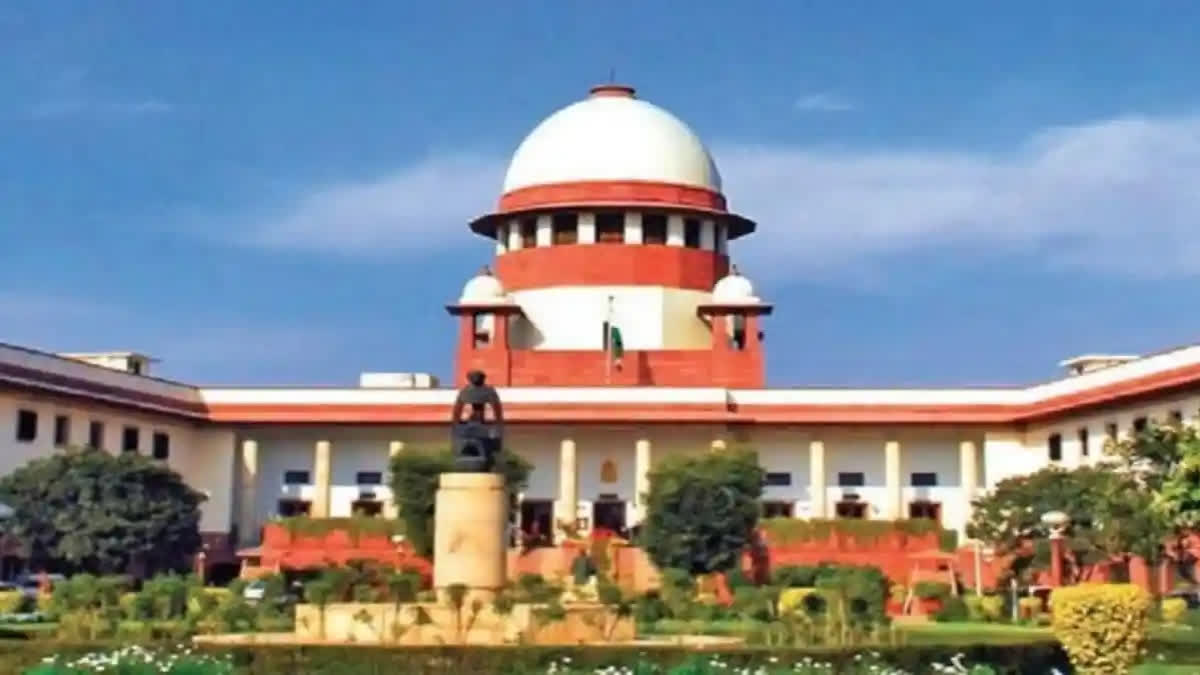New Delhi: The Supreme Court said that mere delay in trial about grave offences cannot be used as a ground to grant bail while rejecting a plea by an alleged member Gurwinder Singh of the banned terrorist organisation 'Sikhs for Justice' run by the US-based Gurpatwant Singh Pannun.
A bench comprising justices MM Sundresh and Aravind Kumar said, “The material available on record indicates the involvement of the appellant in furtherance of terrorist activities backed by members of banned terrorist organisation involving the exchange of large quantum of money through different channels, which need to be deciphered." The bench said that in such a scenario if the appellant is released on bail there is every likelihood that he will influence the key witnesses of the case, which might hamper the process of justice.
Petitioner Gurwinder Singh was booked for various Sections under IPC and also the Unlawful Activities (Prevention) Act (UAPA). The bench said the conventional idea in bail jurisprudence vis-à-vis ordinary penal offences that the discretion of courts must tilt in favour of the oft-quoted phrase--‘bail is the rule, jail is the exception’--unless circumstances justify otherwise--does not find any place while dealing with bail applications under UAPA.
“The ‘exercise’ of the general power to grant bail under the UAP Act is severely restrictive in scope. The form of the words used in proviso to Section 43D (5)– ‘shall not be released’ in contrast with the form of the words as found in Section 437(1) CrPC - ‘may be released’– suggests the intention of the legislature to make bail, the exception and jail, the rule”, it said.
The bench said it is interesting to note that there is no analogous provision traceable in any other statute to the one found in Section 43D (5) of the UAPA and in that sense, the language of bail limitation adopted therein remains unique. The bench said in dealing with bail applications under UAPA, the courts are merely examining if there is justification to reject bail and the ‘justifications’ must be searched from the case diary and the final report submitted before the special court. The legislature has prescribed a low, ‘prima facie’ standard, as a measure of the degree of satisfaction, to be recorded by the court when scrutinising the justifications (materials on record), it added.
"Bail must be rejected as a ‘rule’ if after hearing the public prosecutor and after perusing the final report or case diary, the court concludes that there are reasonable grounds for believing that the accusations are prima facie true. It is only if the test for rejection of bail is not satisfied – that the courts would proceed to decide the bail application in accordance with the ‘tripod test’ (flight risk, influencing witnesses, tampering with evidence)," the bench said.
The apex court junked an appeal by Singh challenging the Punjab and Haryana High Court's order rejecting his bail application. He was arrested in 2018 after busting a module of the banned terrorist organisation. The NIA filed the charge sheets in the case after taking over the probe from the Punjab police. The court framed charges on December 9, 2021.
The appellant’s counsel contended that in the terror funding chart, the name of his client does not find a place. “It is pertinent to mention that the charges in the present case reveal the involvement of a terrorist gang, which includes different members recruited for multiple roles. Hence, the mere fact that the accused has not received any funds or nothing incriminating was recovered from his mobile phone does not absolve him of his role in the instant crime”, said the bench.
The bench said in the present case the trial is already underway and 22 witnesses, including the protected witnesses, have been examined. “Therefore, mere delay in trial pertaining to grave offences as one involved in the instant case cannot be used as a ground to grant bail. Hence, the aforesaid argument on the behalf of the appellant cannot be accepted”, said the bench.
“Hence, we are of the considered view that the material on record prima facie indicates the complicity of the accused as a part of the conspiracy since he was knowingly facilitating the commission of a preparatory act towards the commission of terrorist act under Section 18 of the UAP Act”, said the bench, in its judgment delivered on February 7.
Read more: Punjab Police Books Pro-Khalistan Leader Pannun For Threatening Hindu Temple Management


